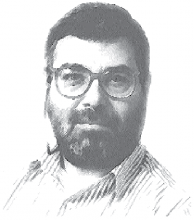You are here
Why youth radicalise
Mar 09,2017 - Last updated at Mar 09,2017
It is refreshing to read a report once in a while that accurately captures the multiple reasons and mechanisms that lead some young people in the Arab world to pursue a path of radical action, including joining movements like Daesh and Al Qaeda.
This is the case with a concise study that was published this week by an Amman-based think tank named WANA (West Asia-North Africa) Institute that was launched a few years ago by Jordan’s Prince El Hassan Bin Talal to promote “authentic” research, analysis and policy recommendations by the people of this region.
The 32-page study, titled “Trapped between destructive choices: radicalisation drivers affecting youth in Jordan” (available at www.wanainstitute.org), is based on focus group sessions with 52 youth in Jordan, including 16 Syrian refugees, in four cities that have experienced occasional radicalisation and violence in recent years: namely Salt, Maan, Irbid and Rusayfeh.
While this is by no means a nationally representative sample, the methodical research is valuable because it succinctly captures the multiple factors in young people’s lives that intersect to drive some men and women to join militant groups and join “the jihad” in Syria, as they explain it.
These many factors in people’s lives are rarely acknowledged in an integrated manner in the masses of research and public policy materials that I have examined from the rest of the world.
Especially in the Western world, most analyses of the drivers of radicalisation emphasise one or two factors, often exaggerating the role of religion while downplaying political and socioeconomic factors.
The simplistic, superficial, deficient and usually useless analyses that dominate both the Western world and Arab officialdom could be the result of several factors: ignorance, laziness, ideologically driven bias, or simply that Arab and Western elites do not want to see the many causes of radicalisation because they would find that they are often to blame for some of them.
This WANA Institute report is refreshing and valuable because it clarifies the wider range of factors to blame for radicalisation of our youth and the relationships among those factors.
It says that a combination of economic, social, family, psychological and ideological push and pull factors come together in various combinations, and at various junctures in young people’s lives, to create tensions in those lives and drive a relatively small number of them over the edge and into the hands of sophisticated Daesh and other recruiters who are very aware of these dynamics.
Among the important contributors to youth radicalisation, the study found, are economic pressures (especially unemployment and poverty) that leave youth frustrated and powerless to produce change in their own societies.
These can combine with deep political grievances about corruption, injustices, marginalisation, nepotism and unequal application of the rule of law, which cause some young men and women to seek alternatives to their vulnerability, humiliation and helplessness.
These “public” factors can combine with personal, psychological or family conditions that aggravate a young person’s sense of hopelessness and of “being trapped in a network of lost opportunity and injustice”, which can then trigger a psychological search for meaning and purpose in life.
Such a search is usually part of the growing up process of any human being; it becomes lethally urgent when it combines with the negative conditions in some young people’s economic, political, social and family lives.
So who answers the call for a new life in which marginalised, hopeless young men and women can instantly become powerful and heroic, part of a community of like-minded dynamic actors who wipe away corruption and exploitation, restore dignity and equity to the world, and avenge injustices against their fellow (Sunni) Muslims?
Daesh and others who claim to carry out divinely mandated jihad answer the call.
Many other dimensions of this process have been identified in this and some other research, including gender-, sexuality- and refugee-related dynamics.
The authors of this study, Dr Neven Bondokji, Kim Wilkinson and Leen Aghabi, have provided important insights and some fresh verifications related to how we and the world fully understand why relatively few people in our societies become radicalised and join groups that engage in terrorism and savagery in a sustained manner.
The report also includes intriguing policy recommendations, and valuable suggestions for further research that are both firmly anchored in the realities of our societies’ dynamics at government, economic, social, psychological and family levels — rather than the fantasy analyses we often get from foreign quarters or most of our own Arab political elites, who still refuse to grasp why and how terrorists suddenly emerged from our own homes and schools in recent decades.











